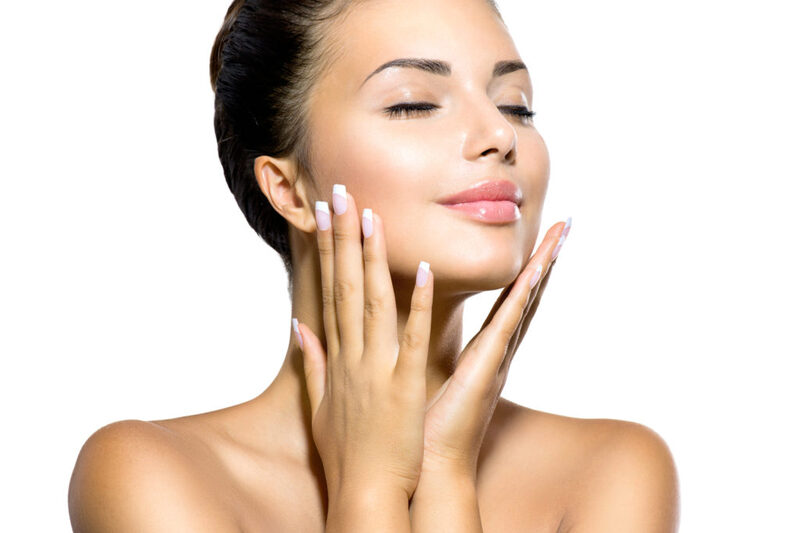The Key To Healthy Skin
Posted: February 7th, 2021
Your skin reveals the stories of your life, from acne breakouts during adolescence, to the radiant glow of pregnancy and the lovely sunspots of aging. Both your age and your health can be reflected in your skin.
Your skin has many functions. Its most important role is being the first line of defense between our bodies and the outside world. It protects us from bacteria, viruses, pollution and chemical substances that we come across in the workplace and at home.
Our skin helps regulate body temperature, as well as maintains fluid balance, all while controlling moisture loss. It can also act as a barrier and shock absorber. The skin also recognizes pain sensations to alert us to danger, and protect us against the suns harmful ultraviolet rays.
You may not be able to control some of the internal influences to your skin but you can definitely protect yourself from the external influences such as unprotected sun exposure and washing too frequently with hot water. An unhealthy diet, stress, a lack of sleep, not enough exercise, dehydration, smoking, and some medications can all impact the skins ability to operate as a good protective barrier.
1. Keep Your Stress in Check
Have you ever woken up on an important day and look in the mirror and you see something on your face staring back at you that wasn't there the night before? Well, studies have identified some links between stress levels and skin problems. Studies suspect that stress increases the quantity of sebum, which is the oily substance that blocks pores. Which is what leads to greater acne severity. Finding ways to help reduce your stress levels can help lead to clearer skin.
2. Quit Smoking
Did you know that smoking ages facial skin and skin located on other parts of your body? Smoking narrows the blood vessels found in the outer layers of your skin, which reduces blood flow and exhausts the skin of nutrients and oxygen it needs to remain healthy.
Elastin and collagen give the skin its strength and elasticity. Smoking may reduce the natural elasticity of your skin by causing the breakdown of collagen and the production of collagen.
The repetitive expressions that are made when smoking, such as pursing your lips, can contribute to wrinkles on the face.
3. Sleep
They don't call it "beauty sleep'' for no reason! Sleep can help banish those dark circles around your eyes and improve your skin tone. The recommended amount of sleep for adults is between 7-9 hours every day. Sleeping for under that amount of time could be detrimental to your health and skin.
Did you know that chronic sleep deprivation is known to be linked with obesity, immune deficiency, diabetes, as well as cancer. It also shows that sleep quality may also impact your skin function and aging. While sleeping, your body enters repair mode and regenerates skin, muscles, blood and brain cells. With lack of sleep your body will be unable to produce new collagen, which is what helps prevent your skin from sagging. So next time you say you need to get your beauty sleep, you mean it!
4. A healthy Diet
What you eat is just as important as the products that you put on your skin. Your diet can help improve your overall skin health from the inside out. A clear complexion can begin with eating a heathy diet. Here are a couple different foods you can add your diet that can help make a difference: Mangoes contain compounds with antioxidants. Tomatoes have skin cancer-prevention benefits. Olive Oil is associated with a lower risk of severe facial photoaging, such as wrinkles, dark spots, and discoloration. Cocoa Flavanols found in dark chocolate may improve the structure and function of your skin. Green Tea has compounds called polyphenols that help rejuvenate drying skin cells. White tea has anti-cancer and anti-aging properties. Kale is one of the best sources of lutein and zeaxanthin, these can protect against light-induced skin damage, especially from UV rays. Omega-3 found in oily fish, walnuts, and pumpkin seeds or oils such as linseed and corn oil may prevent dryness and scaling skin. These are just a few examples of foods you can start incorporating into your everyday diet.
5. Moisturize
Skin moisturizers keep the top layer of skin cells hydrated and seal in moisture. There are a couple different ways to keep moisture in and prevent dry, red, and itchy skin.
- Use warm water instead of hot.
- Minimize the use of harsh soaps. Use a gentle and fragrance free cleanser.
- Don't use abrasive scrub brushes, bath sponges, and wash clothes that can damage your skin.
- Pat skin gently dry with a towel
- Moisturize immediately after washing, to Helps trap in the lotions and creams do it within minutes of drying off.
These are just a few ways that can help with the moisture in your skin. Also regular facials can help to exfoliate dead skin cells so your creams and moisturizers can sink in deeper and stay on longer.

